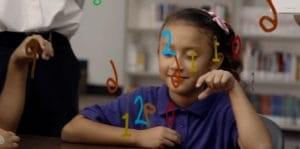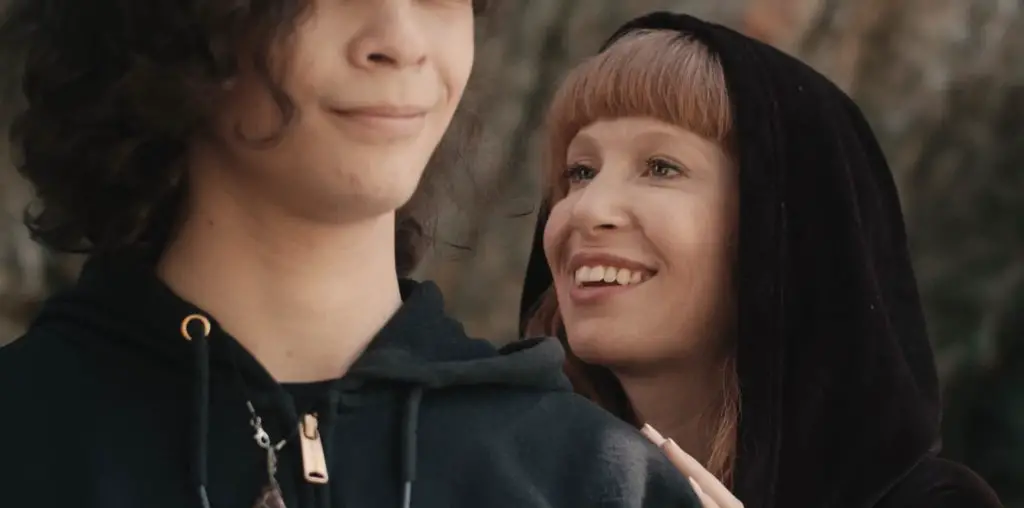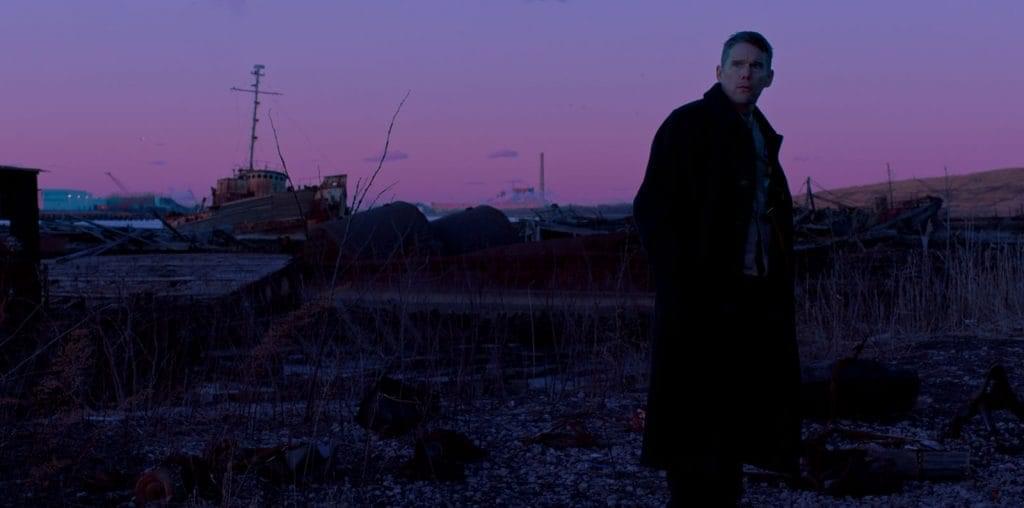
Better Angels begins with former secretary of state Henry Kissinger opining about his first trip to China. A friend he was traveling with asked him what he thinks of the country and Kissinger answers “mysterious.” The friend asks what is so mysterious about it and states that if they get to know each other better (both on a personal level and at a national one), then that mystique will fade away.

“…interviews business people from both the USA and China…on how a beneficial relationship would be far more helpful than a hostile one.”
This opening, while perfectly encompassing the themes of the documentary, gave me great pause. Behind Kissinger is a CGI, wire globe, which is spinning in front of a flat map of Earth. The fondness for this trip he is talking about gets lost in the sheer gaudy cheesiness of the display; looking for all the world like a public access news program. Compounding the novice efforts on display is that nowhere during the minute and a half Kissinger is onscreen does his name appear. I vaguely recognized him but couldn’t place him because the guy is 95 years old now. Studying government and history in high school (or college) is how the average person would recognize the man, and those photos/ television interviews are 30+ years old.
Then the camera begins to zoom through the wire globe as the opening titles start, to reach a model of Earth at its center. Only to fly past it as the North American continent is visible, to reveal another Earth, showing China. Finally the title, Better Angels appears with an otherworldly light illuminating it; absolutely everything about these first three minutes is a mess. Not naming the person speaking, especially for an audience who would not be as with his public life, such as say, China, is a dunderheaded move that shows lack of effort. The backdrop during his only appearance is distracting and poorly rendered. I was laughing at how goofy, and amateur everything looked.
Once all that garishness stops and the movie proper begins, it proves a fascinating watch. Director/ narrator Malcolm Clarke interviews business people from both the USA and China, who all state similar ideas on how a beneficial relationship between their two governments would be far more helpful to everyone than a hostile one. American Apparel founder Dov Charney believes that the US won the Cold War, citing that China is now going in a capitalist, consumer-driven direction. He thinks that this trend will be a great boon for industrial production the world over.
Save for maybe the workers in China itself. The more industrial the country becomes, the higher the cost to create products there becomes. Some businesses source out their factories to developing places such as Ethiopia. This means production costs can stay low and the people of this African nation get steady jobs. Meanwhile, other Chinese businesses are bringing factory work back to the United States. The Chinese workers are gone for a year or more at a time, but get paid excellent wages to be apart from their family for so long. The Americans whose towns have reopened factories are happy for a return of steady income in some of the more rural parts of the States.
Better Angels does not solely focus on the job market though. It focuses on education and how in many ways, the Chinese way of learning is better, if stricter and harder. That is, save for two fundamental differences-working together is not something Chinese students do well, as for the longest time, the culture was all about one-upmanship; whom are you doing better than? This is starting to change, it seems.
The other is free, independent thought process. Rote memorization and strict adherence to facts is the way Chinese schools teach their pupils, which does not leave any room for thinking outside the box if you will. Teachers from the US though are slowly incorporating that into their curriculum when they teach throughout China.

“…how China has set up their own movie studio system, create TV shows, and the like.”
On a personal level, the movie follows the travels of Cao Shengkang. This blind masseur plans to set foot on all seven continents and venture to all the major hotspots. In the States, he hangs out at Venice Beach, sees the Grand Canyon, goes all the way to New York for the Statue Of Liberty, and Muscatine, Iowa. Why a small town with no notable landmarks nearby?
In 1985, as part of a Chinese delegation, Xi Jinping stayed with a family in Muscatine to learn about their agriculture acumen. This is the same Xi Jinping who is now President of the People’s Republic of China. The Chinese president has stated that his two-week stay had a lasting impression on his views of the United States. Cao goes on a pilgrimage of sorts, to visit the house Xi stayed in as a way to honor the man.
Of course, cultural boundaries can best be crossed through popular culture. Thus Better Angels dives into how China has set up their own movie studio system, create TV shows, and the like. Following a reality show where Chinese actors are competing for four spots in the then-upcoming Transformers: Age Of Extinction. This perfectly highlights how China and the United States are similar.
Better Angels starts off rough, with a very amateur production and chintzy effects. Once through those first few minutes, awkward though they are, the film becomes revelatory. Interviewing prominent politic figures, business executives, teachers, and everyday citizens with big dreams, the documentary finds the humanity that unites all the globe.

Better Angels (2018) Written and directed by Malcolm Clarke. Starring Malcolm Clarke, Henry Kissinger, Cao Shengkang, Dov Charney, Qiao Liang, Sidney Ganis, Joseph De Trani, Cheng Siwei.
7 Gummi Bears (out of 10)



Dear Mr. LePire,
by your review you have just proven how little you know about China. For actually reviewing this film that’s exactly what is needed. If you would have deep knowledge of China’s history and politics, you would understand how much China sees the West as an enemy. It’s sad, that a lot of people seem to turn blind on all the values which they and older people have achieved have achieved and fought for in past generations and voluntarily jumping into sinophile behavior without actually questions the theoretical roots behind China’s ambitions.
China is definitely not willing to become America’s best friend, nor do they want democracy, liberty or any kind of freedom.
The only thing they want is world power, and that definitely does not include the US.
For a deeper understanding you may take a look at following institutes and magazines:
CSIS
RAND Corp.
South China Morning Post
MERICS
The Economist
New York Times
Caixin
BBC News
SIPRI
It’s not all fun and games when it comes to China. There is definitely something that we learn from China, and the Chinese culture indeed has positive sides which can benefit the world, but there’s also another side which includes: the pure opposite of democracy, freedom and liberty – including a new Chinese world order where polticial or social freedom of any kind does not exist.
For starters you might want to google “Social credit system China”.